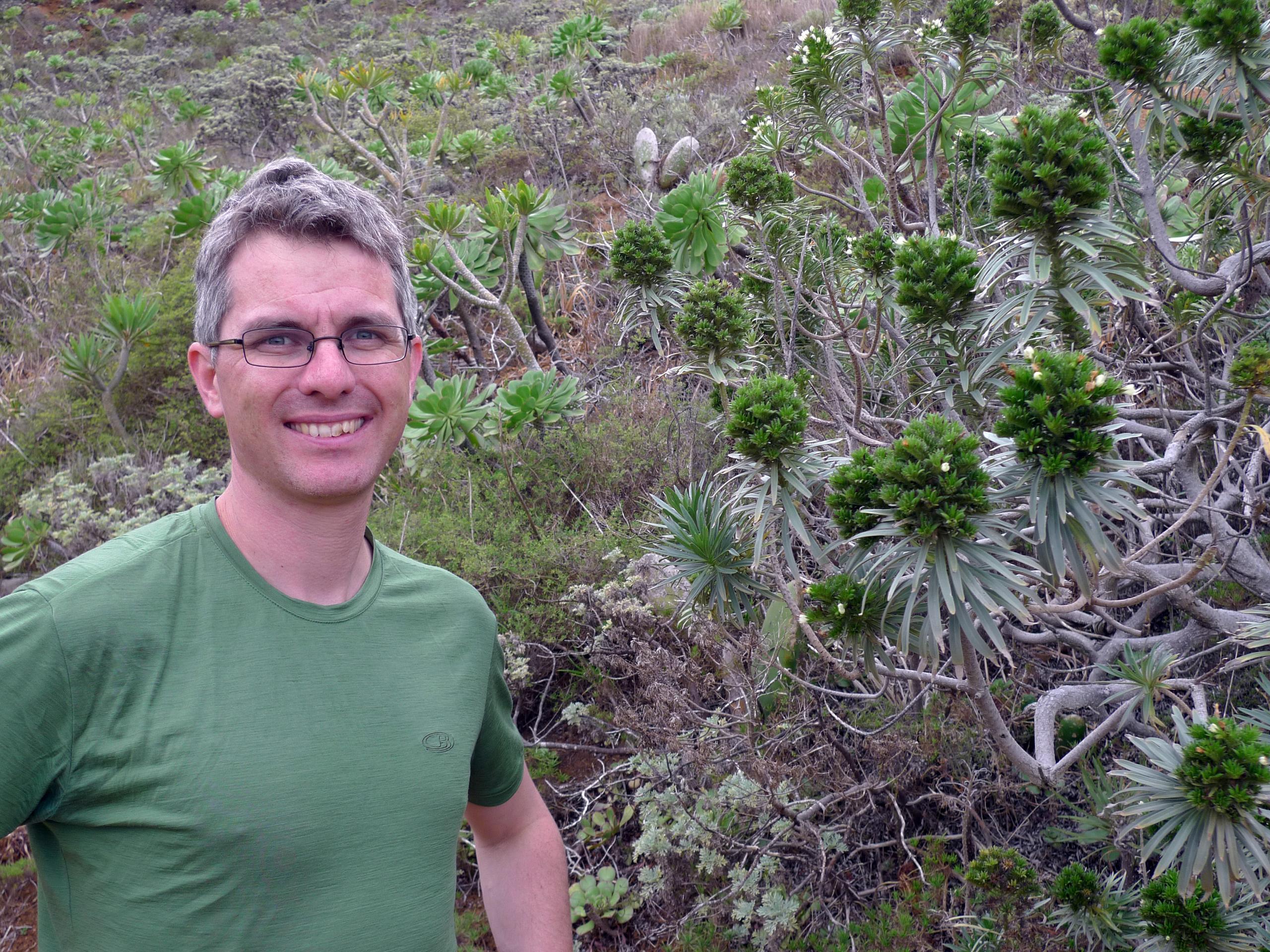Our environmental crisis is a social crisis
Although we have known the causes of our environmental problems and possible solutions for decades, not much has changed. Christoph Küffer asks why.
One core task of the environmental sciences is to analyse the causal drivers of environmental problems and to develop technical solutions. We have achieved a great deal in this regard: we understand global environmental problems such as climate change, and we are documenting the loss of biodiversity around the globe and how this is threatening quality of life.
We know what the solutions are: renewable energy, ecological agriculture, city planning that favours bicycles over cars. We also know how to make our own lives more sustainable: consume less, fly less, eat less meat, and buy longer-lasting products.

A cultural crisis
Despite all of this, little has changed. In my opinion, one major reason for this is that we think of environmental problems as just that: problems arising from the environment rather than from people. But of course people are at the centre of these issues.
We have lost our sense of direction. Those who demand environmental action are quickly perceived as those that moralise, without understanding the economic relationships involved. Those that talk about protecting nature are laughed at in an age when ecosystems appear to be in a state of inexorable degradation. Meanwhile, the vegans, ecotourists, technological futurists, armchair Buddhists and dog whisperers of the world are all trying to convince us that their own relationship with nature is the most authentic one.
In the thick of it
One could argue that it is up to the social sciences and humanities to solve this cultural crisis. In my experience, however, it is in particular also the natural sciences that find themselves in the thick of it.
The book that has had the greatest influence on how I see myself as a scientist in the past year is Elena Ferrante’s four-volume saga, The Neapolitan Novels. The narrator in the book is a writer and intellectual born in a socially underprivileged and patriarchal district of Naples. She has spent her whole professional life dealing with the issues of social injustice and feminism and is constantly forced to renegotiate her role at the intersection between her personal life and her academic work.
Analogously, I realized that as a natural scientist, I can no longer rely on the privilege of working on environmental problems from an objective scientific standpoint in the safe confines of the ivory tower, without having to reflect upon my own role.
My research is not neutral
All of the scientific problems I am currently working on as an ecologist are shaped by culturally determined notions of nature and personal values: are “foreign” plant species from other countries, known as neophytes, a problem? Does it make sense to combat “invasions” of these “non-native” species with glyphosate? Should special permits be issued for their eradication with herbicides such as glyphosate even along rivers, in forests and natural reserves – all places where herbicides are strictly prohibited?
“At its core, the environmental crisis we are facing is a social crisis of disorientation.” – Christoph Küffer
Should we prioritize rescuing rare species or reinvigorating common ones (see articleExternal link)? Can we “restore” “pristine” ecosystems, or do we have to design new ones that are better adapted to an anthropogenic planet (see articleExternal link)? Is nature something that belongs to the realm of the countryside rather than the city? Or are cities that blend nature and technology the only ones with a future?
Environmental Humanities as an opportunity
At its core, the environmental crisis we are facing is a social crisis of disorientation. Thankfully, some have recognized this. The globally emerging field of the Environmental Humanities is bringing natural scientists together with scholars from the humanities and the arts in order to develop new approaches to environmental problems (see box).
For the Environmental Humanities, the history of a society, its language, its culturally specific ways of thinking and concepts such as justice and responsibility are key ways of approaching environmental problems and making them comprehensible.
This perspective also allows me to improve my work as a natural scientist. Whether I deal with non-native species, nature conservation or sustainability, if I do not continually examine the culture and history of these issues along with the language used to discuss them and the reactions of artists and ordinary people to my scientific topics, then my research lacks true depth.
For me, the current explosion of ideas and projects in the Environmental Humanities is one of the most exciting laboratories and offers great hope for our ecological future.
The Environmental HumanitiesExternal link is an international movement led by cultural scientists, artists, environmental scientists and representatives of indigenous cultures, all of whom are working to help find solutions to the environmental crisis. To this end, they rely on narrative and artistic formats and cultural diversity – in Switzerland,External link as well. Their activities include interactive art projectsExternal link, film festivalsExternal link, theatre productionsExternal link, and impromptu events such as poetry slam eveningsExternal link. New research centres have been establishedExternal link that produce a rich scientific literatureExternal link and lead to formidable “big science” eventsExternal link.
This articleExternal link first appeared in the ZukunftsblogExternal link published by federal technology institute ETH Zurich. The views expressed in this article are solely those of the authors, and do not necessarily reflect the views of swissinfo.ch.
Opinion series
swissinfo.ch publishes op-ed articles by contributors writing on a wide range of topics – Swiss issues or those that impact Switzerland. The selection of articles presents a diversity of opinions designed to enrich the debate on the issues discussed.

In compliance with the JTI standards
More: SWI swissinfo.ch certified by the Journalism Trust Initiative











You can find an overview of ongoing debates with our journalists here . Please join us!
If you want to start a conversation about a topic raised in this article or want to report factual errors, email us at english@swissinfo.ch.